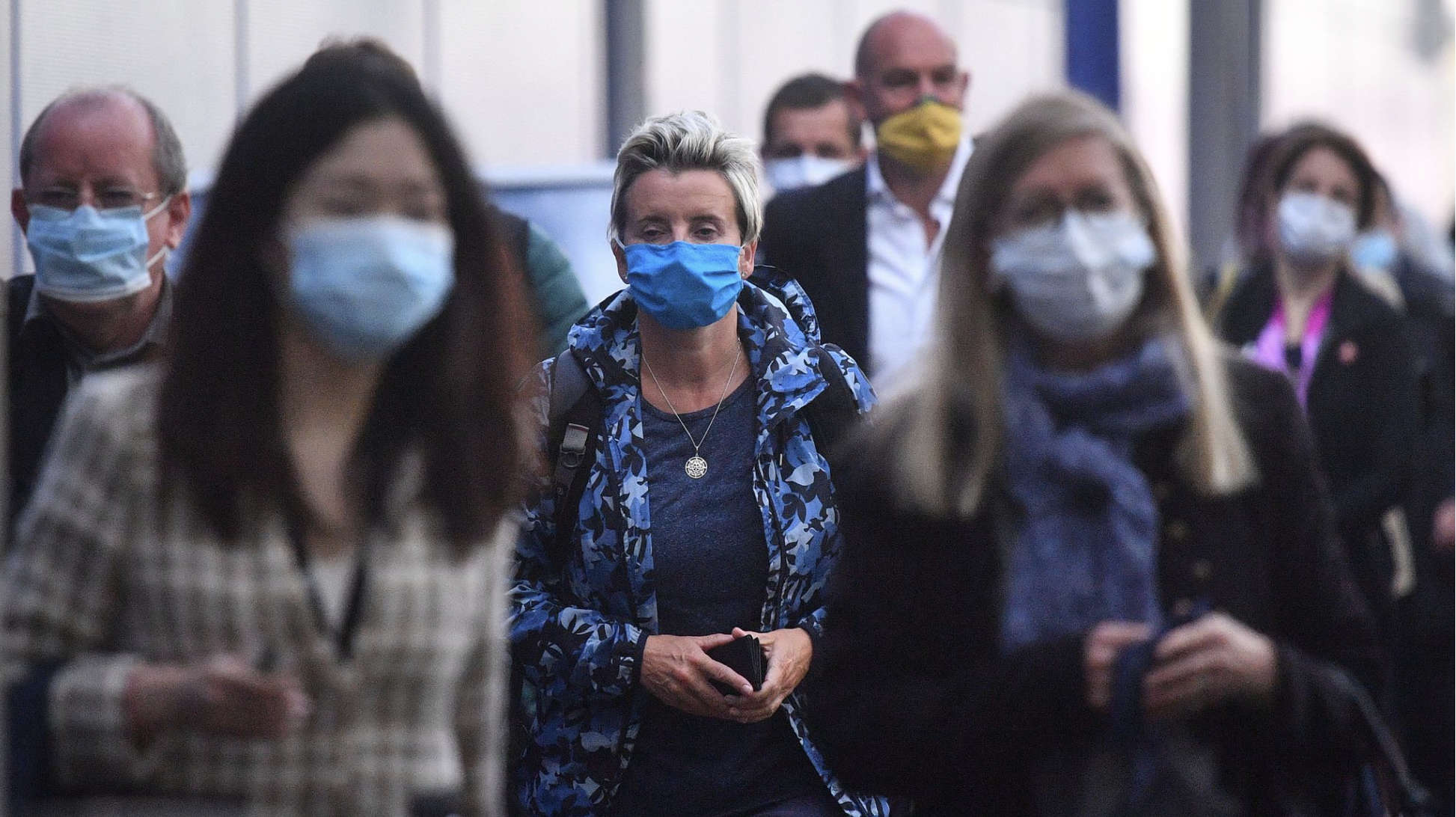
A chief medical adviser has warned adults to stay at home when feeling unwell or wear face coverings when going outside in order to minimise the spread of illness.
Professor Susan Hopkins, chief medical adviser at the UK Health Security Agency (UKHSA), added that adults should not "visit vulnerable people unless urgent" when feeling unwell.
The advice comes as part of the UKHSA's "simple steps" to help protect children and vulnerable individuals as pupils return to schools and universities after the Christmas break.
Prof Hopkins added that it is "important to minimise the spread of infection in schools and other education and childcare settings", and recommended that children with a fever or feeling unwell should also stay home from school or nursery in order to help stop illness spreading.
The advice comes as a senior NHS boss on Monday warned the health service is under "unbearable strain" as pressure is mounting on the government to take action.
Matthew Taylor, head of the NHS Confederation, told Sky News that most NHS leaders say "this is the toughest winter they've ever dealt with" - adding: "We cannot go on like this."
Critical incidents have also been called in at least seven health trusts, Sky News understands.
The UKHSA warned that both flu and COVID-19 are currently "circulating at high levels", which is likely to continue to increase in coming weeks.
Tim Spector, professor of genetic epidemiology at King's College London and founder of the COVID Zoe app, also highlighted an Omicron variant after a scientist said cases had more than doubled in America in a week.
High numbers of scarlet fever, which is caused by group A Streptococcus (Strep A), also continue to be reported in the UK. At least 30 children iin the UK have died from invasive Strep A, and across all age groups in England, there have been 122 fatalities.
Other ways in which illness can be prevented from spreading includes "catching coughs and sneezes in tissues then binning them", getting children to practice good hygiene, and getting a flu vaccination.
"Remember that flu vaccination is still available for all eligible groups and is the best protection against the virus," Prof Hopkins urged.
"We have seen good uptake in older age groups, but vaccination among young children remains low.
"Flu can be very unpleasant and in some cases can lead to more serious illness. Getting your child vaccinated protects them and others they come into contact with, and it's still not too late."
Children eligible to have a flu vaccination include those aged two and three on 31 August 2022, all primary school-aged children and some secondary school-aged children.


 Appeal Following Serious Collision In Portslade
Appeal Following Serious Collision In Portslade
 Boy, 15, Charged With Two Counts Of Attempted Murder
Boy, 15, Charged With Two Counts Of Attempted Murder
 Meet The Southern Train Driver Magistrate Delivering Justice In Sussex
Meet The Southern Train Driver Magistrate Delivering Justice In Sussex
 Witnesses Sought Following House Fire In Eastbourne
Witnesses Sought Following House Fire In Eastbourne
 University Of Brighton Recognised As Top Sports Education Provider
University Of Brighton Recognised As Top Sports Education Provider
 Shoreham Harbour RNLI Opens Recruitment For Boat Crew Volunteers
Shoreham Harbour RNLI Opens Recruitment For Boat Crew Volunteers
 Eastbourne man admits stalking woman in Hailsham
Eastbourne man admits stalking woman in Hailsham
 CCTV Appeal After Luggage Stolen From Gatwick
CCTV Appeal After Luggage Stolen From Gatwick
 Appeal After Boy Seriously Injured In Firle Collision
Appeal After Boy Seriously Injured In Firle Collision
 Boy Charged After Knife Incident On Brighton Bus
Boy Charged After Knife Incident On Brighton Bus